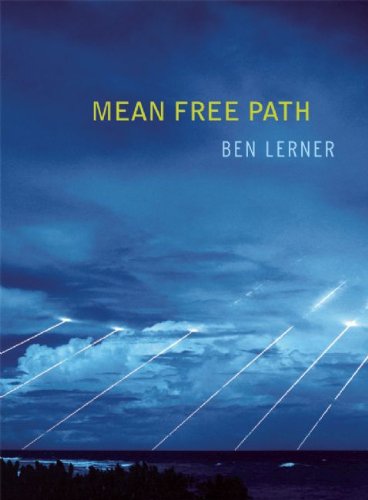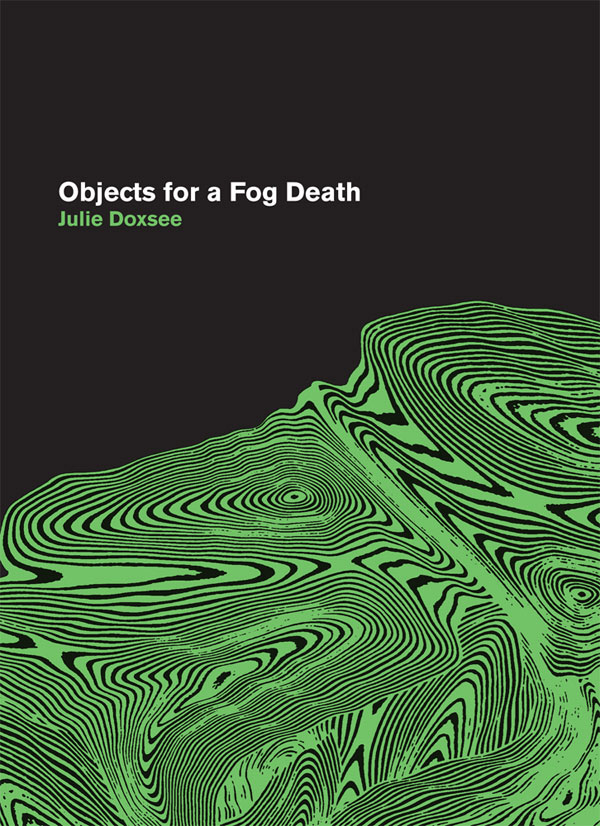"Ben Marcus is a genius, one of the most daring, funny, morally engaged and brilliant writers, someone whose work truly makes a difference in the world."—George Saunders
"How can one word from Ben Marcus's rotten, filthy heart be trusted?"—Michael Marcus, Ben's father
Generative (adj): 1. Of or relating to the generation of offspring; having the power or function of reproducing; procreative, reproductive. Also fig. and in extended use. 2. That generates, produces, or gives rise to something, or has the power or ability to do so; productive, creative; originating, causative.
Wednesday, August 11, 2010
Ben Marcus, the inglorious, unheroic, nobody
Tuesday, August 10, 2010
Interview with Anna Journey
A year and a half ago, I worked as an editorial assistant at The New Criterion. One of my jobs was to send the famously irascible poetry critic, William Logan, books for possible review. New books would come in from publishers all over the place. In this case, it was an act akin to leaving your baby out in the Savannah, with lions and cheetahs and hyenas running around searching for pink soft chewy things to eat. I liked going through the new books, for obvious reasons. Usually though, I'd peruse the book and feel uninspired, place it back down, and that would be that. I had been trying to work on a series of poems called "Quarry is a Place for Nesting" (it didn't work out) when what book should arrive but a book called If Birds Gather Your Hair for Nesting by Anna Journey. There was a feeling of almost sisterhood, with our similarly felt utliziation of a word like 'nesting'; so much of a wry conflation of maternity and a post-modern age's sensibility. I did my usual dance of opening the book in order to scan it for possibly exciting language. I read the first poem, "Adorable Siren, Do You Love the Damned?" I read the first poem. I read the first poem. I read the first poem. Almost immediately, my poem, which had instantly seemed so kith on the surface, became wildly inferior to the beauty, control, and wile of Journey's work. I remember being most drawn to the closure's sex-and-violence grace, which made me feel like something in me was slipping off into a crag:
...I'm drunk
though I won't wear heels, honey, or I'd fallfor anyone. I'd fall devil
over heels over edge over oleanderover open mouthover birthmark over forked
tongue over forked tonguethat turns on mine.
The experience of reading this book made me want to trade in my diction for arcane tools and demented flowers. I remember wanting very badly to know this person, or at least make myself known to them. After I got into the contact with her, her name started popping up everywhere, whether in the literary journal Parnassus, or on random websites lauding the book as part of a best summer reading list. She's a poet of decadence, flare, trickery, and come-hither, someone with whom music and character are on equally intense lyric plains. I knew that speaking with her would be fun as hell, and all of its sexy devils. And with all of the sharp, irresistible language in her poems, this interview revealed to me the very level balance between her attention to language and her intellectual prowess in Contemporary Poetry, which are also earnest and smart as hell to say the least.
Saturday, August 7, 2010
Touching the Void, and Our Extreme Orders
Yesterday, I watched, with treachery, the wild survivor's tale that is Touching the Void, directed by Kevin MacDonald. The structure of the documentary is part raw story-telling and part dramatic reenactment. More specifically, one part is devised of portraits of the three climbers', with each divulging their perspective of what happened; this provides the streaming narrative for the documentary. There is a calm backdrop for these moments that undoubtedly connotes that they’re safe from harm now. The other part has about it the style of amateur recording, taken in the unlikely midst of Siula Grande, a mountain in the Peruvian Andes; it is a shaky, frantic attempt at recapturing the memory of a climber, Joe Simpson, who, after falling 100 feet into the crevice of a glacier and breaking his leg, must drag himself, somehow, back to a camp that may not even be there anymore.
Aside from being simply rapt by the battle to descend the glacier (quite an apt metaphor for story-telling), I was also drawn more and more to all the juxtapositions that, intentionally or not, helped strengthen the narrative. Juxtapositions through dueling landscapes, temperaments, climates, and composition, to name a few. There's a moment near the end where Joe is experiencing what I can only surmise as actually dying (don't worry, I'm not giving anything away; clearly, Joe's beautiful and healthy face is a current, constant presence), and this is when I really started to notice a doubling taking effect: sky and mountain, snow and rock, wind and rain, man and landscape, life and death. On a more macro level, narrator and event, me and them, peril and safety, past and present.



